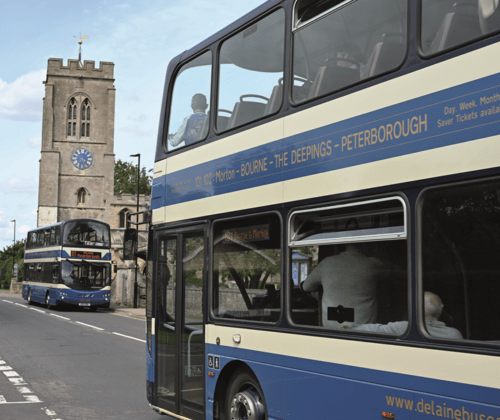
Steven Knight examines what makes Delaine Buses stand out from the crowd
Throughout the 20th century, local village or small town-based bus and coach operators were commonplace. Many had started by providing market day services and, in a pre-car ownership era, day trips. Most passengers were known by name and drivers were concerned if they were not waiting for the bus as they did every week.
These small operators took a traditional approach to their operations, which was also reflected in the liveries of the buses. Bus stop information, printed timetables and handbills, plus the vehicles and passengers’ word of mouth, were the only means available to promote services.
Fast forward 100 years and how things have changed. While the need for bus services has increased and then declined over time before deregulation, we have lost scores of local operators as they have either sold out to bigger companies, retired without any succession plan in place, or have found trading tough and ceased altogether.
In the Lincolnshire market town of Bourne is Delaine, which started passenger services not in the last century, but the one before. The origin of Delaine goes back as far as 1890, when the family business was engaged in carpentry and general contracting. The horse and cart used by that business was also used to carry people to local fairs and markets.
[…]By subscribing you will benefit from:
- Operator & Supplier Profiles
- Face-to-Face Interviews
- Lastest News
- Test Drives and Reviews
- Legal Updates
- Route Focus
- Industry Insider Opinions
- Passenger Perspective
- Vehicle Launches
- and much more!


